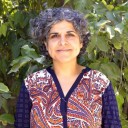At the recent Edgefunders Alliance conference held in Barcelona, Spain, members and participants continuously discussed the need to democratize things. Democratize economies. Democratize to bring back the commons. Democratize philanthropy shifting and redistributing resources to the Global South and Global Movements.
Even the commitment statement developed during the conference focused on the need to shift the power of philanthropy.
Based on the discussions, it seems that there was a general consensus on this concept of democratizing philanthropy – but how do we move forward on this? A three day conference is not sufficient to delve into the details of developing practical steps towards achieving this goal.
I suggest that we consider a community philanthropy based approach to achieve a democratic philanthropy.
In this case, the community comprises the funders along with the movement leaders and activists. Under this model, we are all equal players. There are no donors and beneficiaries. Rather, each player has a ‘resource’ to bring to the table to support the process and the overall goal.
In the community philanthropy model, all players are equal and all contribute with their resources. While the funders may have the financial resources, communities and movements are able to mobilize people to bring tangible change on the ground.
In order to achieve the change that we seek, funders and movements must partner where they bring together all of their resources – material and immaterial – to the table and strategize and plan together for the long term.
Before going further, it is critical to consider what democratizing philanthropy really means to the players. Are all the players aiming to overhaul the current exploitive extractive system for a new regenerative economy? Or do some want to maintain the current system, only making it a bit ‘nicer’? The first step, then, is defining ‘democratic philanthropy’ and establishing a comprehensive strategy to achieve it.
In the current philanthropy paradigm, funders distribute small short term grants to movements , supplying piecemeal and fragmented solutions. However, the conference participants voiced an urgency to act more effectively.
If this is the case, then a paradigm shift is necessary. Democratizing philanthropy must lead to total community control of all the resources towards a #justtransition. In order to ensure that we #reOrganizepower, a community philanthropy based approach is the right tool. The question is whether the funders, and perhaps even the movement leaders, are ready to revolutionize the power dynamics.
Aisha Mansour is Chief Executive of the Dalia Association.
You can read more from the 2017 EDGE Funders annual conference here.






Comments (0)